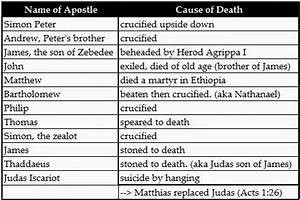January 14- TODAY’S BIBLE READING Genesis 30-31:16; Matthew 10:1-23; Psalm 12:1-8; Proverbs 3:13-15
Today’s Bible readings direct us to the episodes of God building the nation of Israel through the births of the 12 sons of Jacob (Genesis 30) and Jesus Christ building His church through calling His 12 disciples (Matthew 10) and sending them out on a mission.
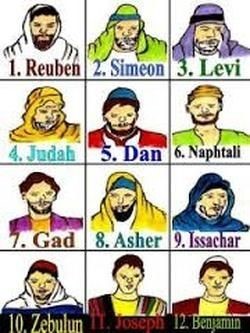
The house of Jacob (soon to be named ‘Israel’) is built with our God of all grace sovereignly overseeing, while not approving, the sinful choices of men and women. Jacob represents the natural man. He is a “cheater” from birth. As we have learned, this is what the name ‘Jacob’, means. Competition and striving are characteristics of his Adamic nature, even as it is with ours. The natural man fights for what he wants and yet what he wants does not satisfy. It will be that way until there is a full surrender to God. And that surrender must be on God’s terms and not ours.
Jacob’s striving creates a culture of striving within his household.
As one commentator put it, “The story told is one of competition between two women and their maids, which results in Jacob being shuttled from bedroom to bedroom, tent to tent. Modern day soap operas deal with a very similar kind of plot. However, God’s “soap” is not intended to encourage us to think sinful thoughts or to commit illicit acts but rather to “clean up our own acts” and to live righteously before Him.” (Bob Deffinbaugh, “Genesis: From Paradise to Patriarchs”).
Insecurity often causes us to act in sinful ways. The sisters, Leah and Rachel, both long to have an assurance that they are loved by their husband, Jacob. They also seek complete fulfillment. They believe this will happen by bearing Jacob’s children.
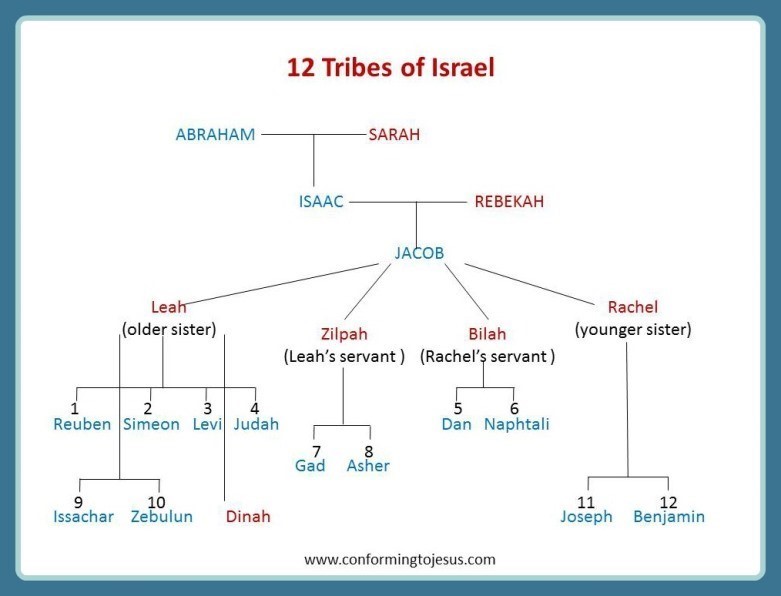
The names of Leah’s children tell the story. She goes from having her hopes set on gaining her husband’s affections, to giving God praise for His grace.
Genesis 29:31-32 (NIV) 31 When the LORD saw that Leah was not loved, he opened her womb, but Rachel was barren. 32 Leah became pregnant and gave birth to a son. She named him Reuben, for she said, “It is because the LORD has seen my misery. Surely my husband will love me now.” (Reuben- literally means, ‘See? A son.’). She longs to be noticed.
Genesis 29:33 (NIV) 33 She conceived again, and when she gave birth to a son she said, “Because the LORD heard that I am not loved, he gave me this one too.” So she named him Simeon. (Simeon means, ‘He hears’). Her prayers are for her husband’s affection.
Genesis 29:34 (NIV) 34 Again she conceived, and when she gave birth to a son she said, “Now at last my husband will become attached to me, because I have borne him three sons.” So he was named Levi. (Levi- from the Hebrew ‘lavah’ to be joined or to be attached). She wants to be bonded with her husband.
Genesis 29:35 (NIV) 35 She conceived again, and when she gave birth to a son she said, “This time I will praise the LORD.” So she named him Judah. Then she stopped having children. Leah reaches some spiritual understanding at this point in her life and looks to the Lord as the satisfier of her desires. For this she gives thanks to God (Judah means ‘praise’).
In Genesis 30, the competition among the wives really gets going. Rachel is jealous of Leah’s gift of bearing children for her beloved husband. There is tension between the sisters and a quarrel between Rachel and Jacob as she blames him for her state of childlessness. (Gen 30:1-2). Notice the difference between the response of Jacob and Isaac to the barrenness of their wives. Isaac prayed for Rebekah.
Genesis 25:21 (NIV) 21 Isaac prayed to the LORD on behalf of his wife, because she was barren. The LORD answered his prayer, and his wife Rebekah became pregnant.
Jacob verbally attacked Rachel and blamed God.
Genesis 30:2 (NIV) 2 Jacob became angry with her and said, “Am I in the place of God, who has kept you from having children?”
Although we are told that Jacob loved Rachel (Genesis 29:18, 20, 30) it is not very evident here.
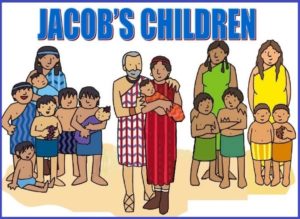
Rachel proposes that Jacob give her a child through a surrogate mother, her servant Bilhah (Gen 30:3-6). Bilhah gives birth to Dan (meaning, ‘judged or vindicated’) and Naphtali- (meaning ‘wrestled’). We can see how the names reflect how far the parents have strayed into a self-centered life.
Leah catches on to the idea and proposes that Jacob sleep with her servant, Zilpah. Zilpah gives birth to Gad- meaning ‘good fortune, luck, has come’ and ‘Asher’ (‘my happiness’).
In this baby-birthing match there is little reference now to God. There is no God-pleasing. It is all about self-pleasing. There is no praying in reference to God’s grace; only playing in a contest of human performance.
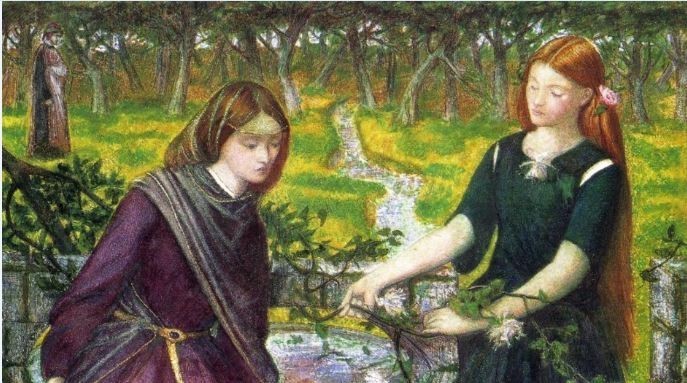
When human plans and abilities fail, other options are sought for purchase. In Rachel’s case, she seeks a remedy in a Love/Fertility Potion, mandrake berries. Leah’s son’s mandrakes are offered to Rachel, on the condition that Jacob is allowed to sleep with her that night. Another indecent proposal is accepted. Leah buys sexual relations, hiring her husband, Jacob, as a prostitute, and Rachel puts her trust in a love/fertility potion rather than God.
Leah conceives a fifth son for Jacob.
Genesis 30:18 (NIV) 18 Then Leah said, “God has rewarded me for giving my maidservant to my husband.” So she named him Issachar. (Issachar means ‘There is a reward’).
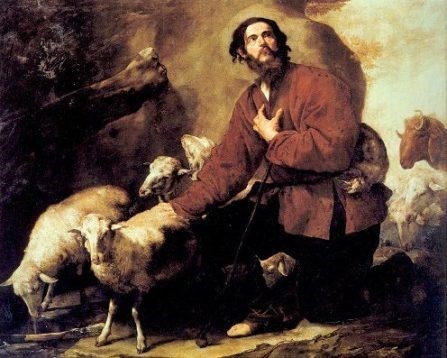
The name reflects her confused theology. We often seek to sanctify our sins by saying “God was in it.”
Leah gives Jacob a sixth son and a daughter. Her hope of earning Jacob’s love is revived.
Genesis 30:19-21 (NIV) 19 Leah conceived again and bore Jacob a sixth son. 20 Then Leah said, “God has presented me with a precious gift. This time my husband will treat me with honor, because I have borne him six sons.” So she named him Zebulun. 21 Some time later she gave birth to a daughter and named her Dinah. (Zebulun, comes from a Hebrew verb, ‘zabal’ meaning to dwell, reflecting Leah’s desire for a happy home life.)
Finally, Rachel is able to conceive and gives birth to Joseph. (Joseph means, “May God add, or increase’).
Genesis 30:22-24 (NIV) 22 Then God remembered Rachel; he listened to her and opened her womb. 23 She became pregnant and gave birth to a son and said, “God has taken away my disgrace.” 24 She named him Joseph, and said, “May the LORD add to me another son.”
The day came for Jacob to leave Laban. There were circumstantial indications that it was the right time to go. Laban, who only had daughters when Jacob arrived, most likely gave him first born son privileges, making him his legal heir. Now that Laban had sons, this inheritance would be split. The sons would resent any depletion of that inheritance amount. Jacob also needed sufficient wealth to support his family. In spite of Jacob’s manipulations and superstitions (visualization and mating misconceptions), which were ultimately of no benefit, God blessed Jacob in spite of himself.
TODAY’S READING FROM THE NEW TESTAMENT– Matthew 10:1-23
As we compare the lists of the twelve disciples in the Synoptic Gospels (Matthew 10:2-4; Mark 3:16-19; and Luke 6:14-16) and the Book of Acts (1:13) we will note that Simon Peter heads every list. James and John, the sons of Zebedee, or Andrew, Peter’s brother, take the follow-up positions and become the first group of four.
The second group of four in these four lists are Philip, Bartholomew (Nathaniel), Matthew and Thomas.
The third group of four in these four lists are James son of Alphaeus, Thaddeus, Simon the Zealot (also called Simon the Cananean) and Judas Iscariot, who betrayed Jesus.
The 12 were sent out with specific instructions to preach the same message that Jesus was preaching-
Matthew 3:2 2 ”Repent, for the kingdom of heaven is at hand.”
They were given authority to do miracles that would signal that the Messiah had come.
Isaiah 35:4-6 4 Say to those with anxious heart, “Take courage, fear not. Behold, your God will come with vengeance; The recompense of God will come, But He will save you.” 5 Then the eyes of the blind will be opened and the ears of the deaf will be unstopped. 6 Then the lame will leap like a deer, and the tongue of the mute will shout for joy. For waters will break forth in the wilderness and streams in the Arabah.
The miracles that the Twelve Disciples were sent out to perform paralleled the miracles that Jesus had already done in the earlier chapters of the Gospel of Matthew (Chapters 8 and 9). These were the miracles of healing the sick, cleansing the leper, casting out demons and raising the dead. In other words these were the miracles associated with the Messiah, signaling His arrival.
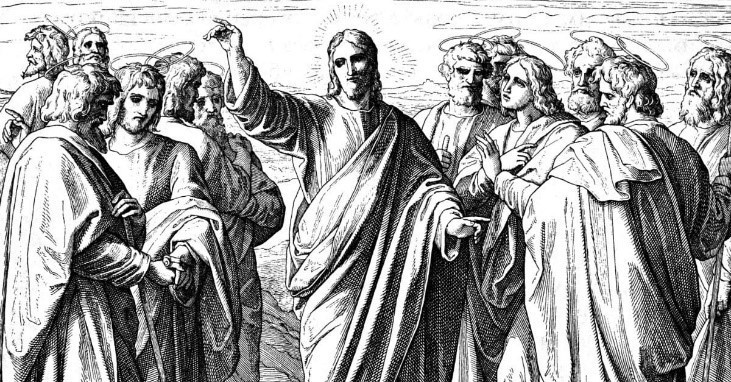
The instructions that Jesus gave the 12 are ‘mission specific’ and were not applied to every one of the disciples’ evangelistic campaigns. They are not to be confused with Christ’s commission to His disciples today. Jesus had not yet died on the cross for our sins, or been raised, triumphing over death. The disciples did not yet have the full gospel message.
Ours is the Great Commission of Matthew 28:19-20, not Matthew 10:1. Their evangelistic campaign was directed to Jews only and to herald that the kingdom of God was near because the King, Jesus, had arrived. Our commission is not to just announce that Jesus is here, but the Good News of Who Jesus Is and what He has done to save sinners. We beg people to be reconciled to Him by putting their trust in His saving work on the cross (2 Cor 5:19-21), repenting of their sin, and receiving Him as He is- The Word made flesh, God Incarnate, their only Lord and Savior (John 1:12).
Matthew 28:19-20 19 ”Go therefore and make disciples of all the nations, baptizing them in the name of the Father and the Son and the Holy Spirit, 20 teaching them to observe all that I commanded you; and lo, I am with you always, even to the end of the age.”
The instruction that Jesus gives in Matthew 10:16 to 24 applies to the future ministries of the disciples. There is no record of the disciples being persecuted or flogged in the synagogues on their early missions. But after Jesus died, rose, and ascended to glory, these disciples certainly did suffer as they laid the foundation for the church through their pioneer evangelism (Ephesians 2:20). The names of these 12 apostles are written on the 12 foundation stones of the wall of the New Jerusalem in the Book of Revelation (Revelation 21:14). It is likely that Judas’ name is replaced with that of Matthias or the Apostle Paul.
Here is a chart that notes how these disciples, the Twelve Apostles, died. All of them sealed their testimony in blood, with the exception of John, who died of natural causes, and Judas, who killed himself after betraying his Master (Matthew 27:5).
TODAY’S READING FROM THE PSALMS– Psalm 12:1-8
This is a Psalm for dark times. Lying and deceit were the practices of the Psalmist’s contemporary culture as it is ours. The Lord promises deliverance and safety for His people through the ministry of His Word:
Psalm 12:6 6 The words of the LORD are pure words; As silver tried in a furnace on the earth, refined seven times.
We have this promise:
Psalm 12:7 7 You, O LORD, will keep them; You will preserve him from this generation forever.
Let us pray for our family, friends, and our neighborhoods. Let us pray for our generation and future generations. May the Lord be honored rather than what is vile! (Psalm 12:8).
TODAY’S READING FROM THE PROVERBS – PROVERBS 3:13-15
PROVERBS: DO YOU WANT TO MAKE A CERTAIN INVESTMENT? Invest yourself in getting Wisdom from God’s Word! Hide God’s Word in your heart.
Proverbs 3:13-15 (NIV) 13 Blessed is the man who finds wisdom, the man who gains understanding, 14 for she is more profitable than silver and yields better returns than gold. 15 She is more precious than rubies; nothing you desire can compare with her.
PRAYER- Lord Jesus, it is a privilege to be called and commissioned as Your disciples. Today we read about the twelve sons of Jacob and Your twelve disciples. What a privilege it is to be a part of Your forever family. We recognize that apart from the miracle of You calling and choosing us we would be lost forever. We are grateful for the Holy Spirit’s merciful unveiling of Your saving work as we read Your Word. We learned today how Your first disciples died as martyrs. Help us to follow their example and live as bold witnesses for You. Awaken souls to their need for the Cross. In Jesus’ Name. Amen.

